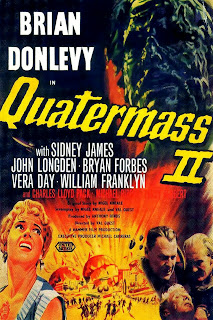On her way to
making classics like The Philadelphia Story and Bringing Up Baby, Katherine
Hepburn cut her teeth in nondescript fare like Morning Glory. A brisk, affable
but ultimately forgettable film, it did get Hepburn the first of the four
Academy Awards she would earn over her long career.
Hepburn plays Eva
Lovelace, a small town stage actor, wanting to make it big on Broadway. After
many fruitless auditions, a big time producer (Douglas Fairbanks Jr.) takes a
chance and gives her a part in one of his upcoming plays. However, on opening
night, Rita Vernon, the star of the show storms off after demanding more money
- can Eva step in and save the day?
The script
focuses mostly on Eva, but does not really flesh her out as a character beyond
the archetypal starry-eyed wannabe. Her well-off upbringing mirrors that of
Hepburn to some extent, so the role might not have been too much of a stretch
to act, but, she certainly comes across as convincing, and her distinctive
speech patterns and accent are already in place.
The rest of the
characters are largely unexceptional stereotypes, such as the diva actress, the
powerful but put upon producer, and the writer who wants to stop doing hit
plays and try something artistic. The one exception to this is Robert Hedges,
the veteran actor who takes Eva under His wing, played with warmth and
likeability by C. Aubrey Smith. A former Sussex and England Cricketer before
turning to acting, Smith founded the Hollywood Cricket Club, roping in fellow
expats such as David Niven, Nigel Bruce and Boris Karloff to play.
Whatever their
individual faults or merits, I often like watching films from this era once, if
only to see their place in the overall story of the development of cinema, as
it sometimes feels as though people were still working out how to make talking
pictures. The acting, with the exception of Hepburn and Smith, is a mix of the
stilted and the slightly too theatrical, and the dialogue flat and uninspired.
In addition, aside from scene filmed from the perspective of Rita Vernon's
mirror, most of the shots are flat and unimaginative, something I seem to
notice quite a lot in Hollywood films of the early 1930s. I have often wondered
whether this is due to the directors or studios assuming that the novelty of sound
was enough to keep the viewer interested.

